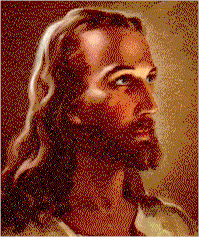dostoyevski’s tears

I’ve mentioned in these pages Lanfranc, Archbishop of Canterbury under William the Conqueror and, after the council of Winchester in 1072, first primate of England, and without wishing to make primate jokes, Lanfranc’s surviving writings are something of a disappointment for such a reputed intellect. Fast forward near a thousand years to the current incumbent, Rowan Williams, much more circumscribed in terms of political power, but certainly a lover of writing and ideas, even if in the rather tendentious way of religious types. Having recently published a book on the faith of Dostoyevsky, an old favourite of mine, Williams spoke in a radio interview of how Dostoyevsky’s eyes welled up with tears every time Jesus’s name was mentioned.
This is very very likely to be bullshit. It’s quite possible that it happened once. Dos was capable of much sentimentality, as revealed towards the end of Crime and Punishment. It’s also quite possible that the old stager managed a repeat performance, but it’s unlikely to have occurred every time. Who were the eyewitnesses from whom Williams got this information? This is how romantic legends are created, with monotonous regularity. Even were it true, we must remember that Dostoyevsky was writing at a time – a very long period indeed – when the legend of Jesus as both deity and real man of unparalleled goodness wasn’t allowed to be questioned. The application of scientific methods to religious questions and entities dates from the early twentieth century in the main, with, I think, significant negative impact on religious belief in those regions where scientific methods are respected. Works such as Lewis’s Mere Christianity were written in reaction to attempts to more thoroughly examine JC’s claims to fame. Dostoyevsky’s tears over Jesus, however many or few, were tears over a well-guarded mythical figure of practical goodness who hardly bore any relationship to the man of the ‘gospel’ writings, who in turn seems little more than confection. Tears in other words, for the mythical idealism that we humans are so eminently capable of, tears for the reality in which we let people down and let ourselves down on a daily if not hourly basis, unlike that perfectly courageous and knowing and good and simple person so many of us carry around within ourselves, and who some call Jesus.
This entry is for the final miscellaneous section of the book.
Labels: the faith hope


0 Comments:
Post a Comment
Subscribe to Post Comments [Atom]
<< Home